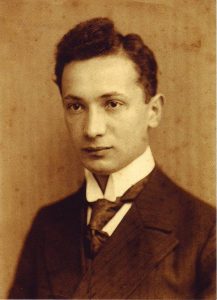There were a few common themes I realized between Vilhauer’s paper and Ruspoli’s film on various philosophers/professionals. The most striking similarity is when flamingo master and poet Manuel Molina is referring to his guitar. He claims that playing a guitar is more like have authentic dialogue with it; which is a major part of Vilhauer’s paper when considering the works of Gadamer, “being a participant in genuine dialogue-play with the other is crucial for what it means to be a human being, or to live a fully human life” (Vilhauer, 82-83). The were also notions of “dominance and conquering” which perhaps contrasted from the film and book. When considering Plato’s dialogue for conquering in which we must objectify the other, the writer claims that this isn’t genuine dialogue. However, in the film we see conquerors throughout history and their help towards human progress. There are also various notions of existentialism and living an authentic human life in both works. The film had a lot of mention of Heidegger; who is a huge figure in the existential theme; Gardener in the story uses very similar phrases and writing style to Heidegger, at times the “other” in the paper can be seen similarly “Dasein” in some of Heidegger’s works. In the film, Molina refers to how technology and life are created by different materials; this is another existential theme in which various philosophers criticize the current human’s obsession with technology. Gadamer’s reflection of “play” can be compared greatly by the various philosophers in the film. When referring to athletes who of course play within confided rules of their respective sport, those who see things in a proficient and creative way usually are able to dominate and change the landscape of the game. We can see these reconstructive and creative process throughout various facets of life including music, art, film, and even various sciences/social sciences alike.
In terms of how the paper reflects upon my own future fields of research: existentialism teaches us the importance of a human’s progress as well as our purpose in life. A lot of people work jobs in order to secure their lives; however, a lot of people spend their money on materialistic endeavors which I believe Heidegger would view as inauthentic. I believe it would be most satisfying to work in a field that you are truly passionate about, it’s one of the best ways to motivate yourself into truly accomplishing your life goals. If you’re passionate about the field you work in and study, it would be easier to work within an open dialogue with that field; similar to the way Gadamer states we must have open dialogue with the “other”. Heidegger refers to objects as having existence (used for a purpose), while humans have essence (something with and indispensable or abstract property). In terms of my own specific proposals, Gadamer’s notion of “play” which can be interpreted as the room one needs to carry their task in an audacious fashion; to be unafraid in committing errors for the sake of aggressive and creative endeavor. Those who “see” things differently (quoting back to Berger) have the ability to drastically the change the landscape in their respective field of expertise. During my tutorials I can use this bold notion of fearless research and creative film making to vastly separate myself from the various competitors in my field. Whether or not I succeed in a professional setting may be my ability to differentiate myself, and at the very least be unique in my efforts of trying to create my own project. It would be critically important to state that Vilhauer’s interpretation of Gadamer’s genuine dialogue and Ruspoli’s film of being in the world are not only tools to help guide me in my various tutorial projects but to also cement the importance of being a genuine human being who truly wants to make a difference in their respective field
.
